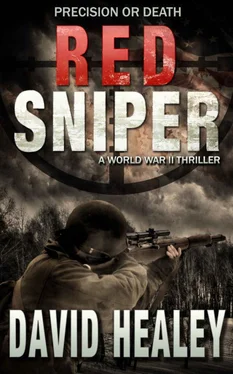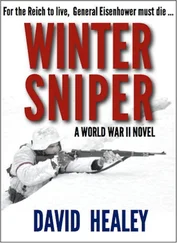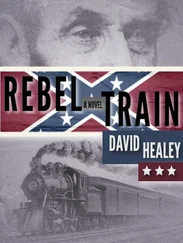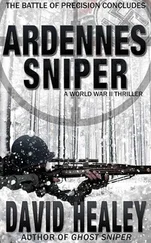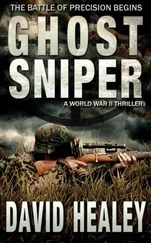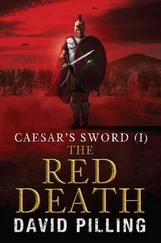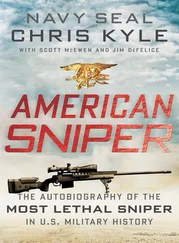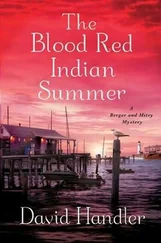Nodding, heart pounding, Inna hurried away. It was very clear what Barkov wanted, but she had no intention of giving it to him. To be a woman in the Soviet Union was to be powerless, and to be a woman assigned to a remote Gulag was to be helpless. She would have to be careful, and somehow string him along without completely rebuffing his advances. The lives of Whitlock and Ramsey, even her own life, might depend on it.
• • •
The next morning, Inna went into the village for supplies. Sometimes the villagers would have a few eggs to trade, or fresh meat. Inna had no money, but the inventory at the infirmary was not closely watched. She always had a few items to barter.
One of the villagers who sought her out this morning was Bruna Ivanovna, the wife of a local hunter and trapper named Vaska. She was an old babushka if ever there was one. Inna had chatted with her from time to time, and had previously mentioned the Americans to the babushka, only because it was common knowledge in the village that a long time ago, Bruna Ivanovna’s husband had fought with the Americans against the Bolsheviks. After Inna had swapped some liniment for two fresh rabbits, Bruna Ivanovna lingered a moment, as if she had something else to say.
“What is it?” Inna finally asked, sensing the woman’s reluctance to leave.
“How is your American friend?”
“He is fine, or at least as good any anyone can expect to be in that place.”
Bruna Ivanovna nodded sagely. She looked around furtively, as if to make sure that they were not being overheard, although no one was in sight. “How would you like to help get him out of that place?”
Inna tensed. She kept her face carefully neutral. It was a fact of life in Russia that one must be cautious about whom you trusted. She did not want to end up as a zek in the nearby Gulag, at the complete mercy of someone like Barkov. “What do you mean?”
“I am saying that my husband can help him.”
Then Bruna Ivanovna explained, and Inna nodded, faster and faster, as the possibilities took shape. “What happens now?”
“Come back tomorrow,” the hunter’s wife said. “Bring some more liniment. It helps my old bones, which ache so from the cold. And see to it that you are not followed.”
The barking of Vaska’s dog told them that someone was at the door.
The dog was not allowed in the house no matter how cold it got. This was some sort of rural Russian tradition. It also meant that nobody got near the front door without the dog making a ruckus.
Cole tightened his grip on the Browning 1911 in his hand and Samson shifted his bulk to cover the door with his shotgun. The dog’s bark turned to a happy whine as whoever was out there made friends.
Vaska approached the door armed with nothing more than his tobacco pipe. Seconds later, he was beckoning in the woman who stood there. She appeared to be alone, so Cole and the others relaxed enough to take their fingers off their triggers.
Vaska’s wife had set up this meeting with the woman who worked in the Gulag infirmary. Cole still didn’t know the wife’s name, so in his head he just referred to her as Mrs. Vaska. Maybe Vaska had introduced her at some point, but Cole had either missed it or couldn’t remember the Russian name.
Inna Mikhaylovna was a lot more memorable.
She entered the small house, keeping her head down and wrapped in a head scarf, like an old babushka. She had come under cover of darkness to avoid as many prying eyes as possible. Cole didn’t know how much good that would do—if the Russian village was anything like Gashey’s Creek, people talked, and not much got by them. He just hoped there weren’t too many villagers spying for the Gulag.
The woman took off the scarf and sat at the kitchen table. She had dishwater blond hair and lacked the roundness of face that he had come to expect in the local Russians. Her eyes took in the faces around the table. Her gaze settled on Cole, who sat at the head of the table next to Vaska. So this was the girl who was in love with Whitlock? Lucky bastard, Cole thought.
Mrs. Vaska served tea solemnly, as if they were all distant relations gathering to discuss something serious, like the sale of property—or maybe the details of an arranged marriage. She did not serve food. Food always seemed to be in short supply. There sure as hell weren’t any cakes or cookies to pass around. You couldn’t share what you didn’t have. Cole felt right at home.
“Are you in charge?” she asked Cole.
Honaker practically leaped out of his chair as he announced, “That would be me.” He asked what was now obvious, a tone of surprise in his voice: “You speak English?”
“Yes. Just the four of you?” she asked, looking around the table again doubtfully. Her English didn’t have much of an accent—she could almost have passed for an American. Who’d have thought, out here in the north of Russia?
“We’re enough, honey. Believe me,” Honaker said, sounding boastful.
“Sometimes a small group attracts less attention,” Cole explained. “We are glad for your help, miss.”
“Inna,” she said, pronouncing it EE-nah.
“Cole,” he said. He rattled off the names of the other men, but she looked too nervous to remember all the names. He doubted that she was any kind of spy—and if she had been, the Russians would have been right behind her and rounded them all up by now.
Honaker was about two steps behind Cole’s thinking process. “Why should we believe you are really trying to help us?” he demanded.
“I am not helping you,” she said, some snap in her voice that Cole liked. “I am helping Harry.”
By “Harry” she meant Harrison Whitlock IV, grandson of a United States Senator and the golden boy of a New England family that was richer than Jesus.
“Then we’re in luck,” Cole said. “We need to break him the hell out of that Gulag, so we could use your help.”
Her eyes went back to Cole. Honaker had said he was in charge, but her eyes stayed on Cole. “I have a plan,” she said.
“Miss Inna, I do love a woman with a plan,” Cole said before Honaker could open his mouth, which earned him a scowl. “Let’s hear it.”
Quickly, she explained the layout of the Gulag compound and its basic security. Cole began to understand that it was really more like an old-fashioned frontier stockade than a proper prison. The Gulag compound had just one watch tower. There were searchlights, but to save electricity they were rarely turned on. There was at least one machine gun up in the watch tower, as far as she could tell, although they never had been fired at anyone trying to escape. Prisoners did escape from time to time, but they never got far. Where would they go, anyhow, in the middle of the taiga, in the dead of night? In effect, the taiga itself served as the prison walls.
“Then there is Barkov,” she said. She shuddered. “He is a hunter and he tracks down anyone who escapes. He is a cruel man.”
“Is he the commandant, or whatever you call it, of this Gulag?”
“No, but he is like the overseer. He chases down anyone who escapes.”
“Sounds like a hunting dog.”
“He is more like a bear,” she said. “He was a sniper in Stalingrad and then in the offensive into Germany. He should be a hero of Russia, but they sent him here for the things that he did in Germany.”
“What kind of things?” Vaccaro asked, sounding nervous.
Inna shrugged, leaving that to their imagination. They could imagine a lot. This Barkov had probably done all that, and worse, to get himself sent to this place.
“He’s nothing we can’t handle,” Honaker said.
Cole wasn’t so sure. This girl didn’t look as if she scared easily, but it was clear that Barkov concerned her. “I reckon we need to get a head start to give us a chance against Barkov,” Cole said. “How do we get Whitlock out?”
Читать дальше
